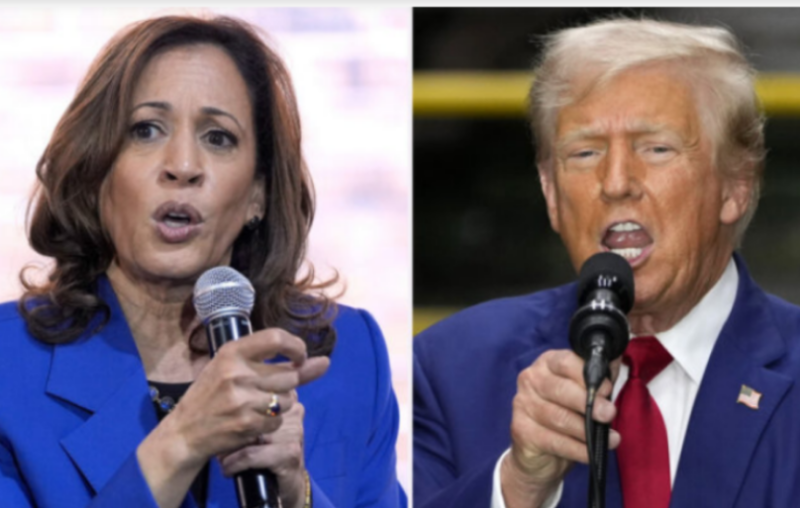Washington (Web Desk/ Agencies): Democrat Kamala Harris wrapped up her presidential campaign with a final appeal at a historic Black church and a focus on Arab American voters in Michigan, urging the importance of collective action as Election Day approaches.
In her addresses, Harris highlighted the urgency of voting and the need for community involvement to shape the nation’s future.
During her visit to Greater Emmanuel Institutional Church, Harris expressed that it’s not enough to rely solely on prayer, stating, “We must act.” She resonated deeply with the congregation, encouraging them to make their voices heard.
Additionally, while addressing Michigan’s Arab American community, she spoke poignantly about the ongoing violence in Gaza, condemning the humanitarian crisis and vowing to strive for peace if elected.
In contrast, Republican candidate Donald Trump took a different approach at a rally in Pennsylvania, where his rhetoric became increasingly combative.
He often deviated from his prepared remarks, launching into personal attacks on Democrats and dismissing unfavourable opinion polls.
The comments by the former president included harsh criticisms of the media, which he described as "fake news," and he made alarming remarks about security, suggesting that to reach him, an assassin would need to “shoot through the media.”
Trump’s aggressive language raised eyebrows, especially following an assassination attempt earlier in the year.
His statements reflected a broader strategy aimed at energizing his base, but they also attracted significant backlash from critics who expressed concern over the normalization of violent rhetoric in political discourse.
Polls indicate a tight race, with Harris garnering strong support among female voters, while Trump is making gains with Hispanic men.
Both candidates, however, face a backdrop of unfavorable opinions from the electorate, yet voter engagement remains high. More than 78 million Americans have cast their ballots before Election Day, nearing half of the total votes recorded in the 2020 election.
As they campaign, Harris and Trump are focusing on key demographics, albeit in markedly different ways.
Harris’s strategy involves reaching out to undecided voters with messages of inclusivity and hope, while Trump relies on rallying his supporters through familiar themes of grievance and confrontation.
With control of Congress also at stake, the upcoming election is critical, as Republicans are favored to secure a majority in the Senate, while Democrats hope to flip the narrow Republican majority in the House.
The stakes are high, with both parties aware that the results will significantly influence legislative agendas in the years to come.
As the election draws near, both candidates are fully aware of the potential ramifications of the outcome, especially in a climate where divisions are deepening and voter sentiment is increasingly polarized.


